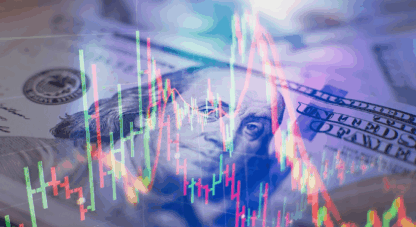Aphorisms can be a treasure trove of wisdom. “The tail wagging the dog” is one such. Few human traits are so pronounced as the urge to control others, particularly those more powerful than the controller—to wag the dog.
The first devilish door-to-door salesman offered Eve a bill of goods on this premise. She could supplant the creator of the universe by taking a bite of fruit. In doing so, she’d become a god. Sold!
Some time later, the Israel of antiquity was told to repent and sacrifice animals as a sign that wrongdoing must be atoned for by blood—either that of the wrongdoer or that of a righteous proxy. Instead, the country turned from this sacrifice of atonement to one of bribery, offered to more human gods—gods who had foibles and could be bribed to provide rain or victory or sons. Gods who could be wagged.
Pastors know all about the concept from more than biblical accounts. Some of their greatest challenges are from people who don’t bother to leave kith, kin, and career for four to eight years of subsistence living and constant study before taking a low-paying job shepherding sometimes malcontented sheep with never-ending needs at all hours of the day and night. Instead, these superior souls attempt to enact their own agendas by pressuring or coercing pastors who have gone through all these qualifying difficulties. Yes, there can be good and loving advice from parishioners, and there often is, but there’s plenty of dog-wagging as well.
Armed with a teacher certificate, a fresh-from-college teacher can skip over nine months of pregnancy, many hours of agonizing labor, months of sleep deprivation, years of care and worry, and many more dollars than most can count, to tell a mother what her child should learn. Again, the teacher can certainly be right. These days that’s not often the case.
Bureaucrats and legislators are some of the worst waggers. A business creator slaves and sacrifices for years to form a successful business. He goes without vacation, works long hours, plows profits back into the business, guides the work through good times and bad, hires and manages employees with all that entails, and finally gets to the point where he can begin to enjoy the fruits of his labor. Along comes a legislator—often a lawyer with no business experience—to levy or increase a tax on his earnings. Then some bureaucrat who’s never had a productive job tells him what he can or can’t do by regulating his work and business. Wag that dog!
The saying is particularly apropos this week as we go into the 2024 presidential election. Such elections have largely become about promising spoils from the public coffer in exchange for votes. Harris promises money for housing, babies, and ostensibly all the things Biden has been doling out, since she disagrees with none of his policies or actions. Trump promises tax breaks without taking away any entitlement programs.
Voters get to choose their poison. Many will do so on the basis of the pelf or power they have been promised by a candidate. They’ll believe that by casting their vote they can wag the dog of government and submit it to their bidding.
Certainly one of the candidates’ philosophies is better grounded in reality than the other, but neither is workable precisely as offered. Reality is about to intrude in America in a very big way. Can disaster be avoided?
The content creators summarized below discuss this date with destiny for America. While Trump’s record is significantly more capitalistic, and therefore better grounded, than Harris’s, he also believes in spending what we don’t have. Whoever is elected will have to compromise their election promises. Both have extensive experience with such bait and switch, but this time the type and amount of it will not likely go over well with Americans.
The truth is that, to one degree or another, we are all charter members of the Immaculate Order of Inveterate Dog-wagging Demigods, and we do not suffer disappointment gladly. Unfortunately, disappointment is inevitable. There is rough water ahead, and our boat is leaking. Given the respective ideologies of the candidates, it would seem that sinking the boat and launching a ‘new and better one’ (which looks an awful lot like a slave galley to this author) is the goal for Harris, while patching the existing boat and restoring it to greatness is the goal for Trump.
Either way, it will behoove you to have a life vest. And straining the heck out of the boating metaphor because gold doesn’t float, that life preserver is gold. Either candidate will have to deal with a dangerously weak financial situation, and risks weakening the currency whatever course they choose. When currencies fail, gold doesn’t.
View or listen to the publications summarized below for more on this crucial topic.
Key Takeaways:
- Will the real interest rate please stand up?
- How long before reality intrudes?
- When the Western investor wakes up, watch out!
- What is copper saying about silver?
The McAlvany Weekly Commentary: Lower Interest Rates: Get Em While They Last
David and Kevin take a look at the Summers-Barsky thesis, which says that when interest rates rise, gold should fall in price. That has not been the case over the past few years, so the hosts look deeper. Regarding the Fed’s recent tightening spate, David asks, “Gold is rising alongside interest rates, and so it forces you to ask the question, is gold telling us there’s more inflation ahead?” David and Doug have both been highlighting the overall loosening of interest rates in spite of the Fed’s actions, which is confirmed by gold’s rise in price. Now that the Fed is joining the market in lowering rates, money is flowing freely and gold is likely telling us that an uptick in inflation lies ahead. If the Fed were to raise interest rates as Paul Volker did in the early 1980s, would that cool gold’s price rise? David explains: “Certainly, there is an inflection point where higher rates do matter, and that would be negative for gold investors… I think there’s different circumstances today [than there were in Volker’s day]… Our Treasury market frankly could not bear double-digit rates.” David’s conclusion is that rates might fall for the next year or so, but the phenomenon will likely be temporary. “We remain of the opinion that longer term rates will increase following the current policy pushed lower by the FOMC.” And he explains how money has flowed so freely when, ostensibly, the Fed was withdrawing it from the system via higher interest rates: “Private credit is what everyone is fawning over today, and it’s capturing market share from commercial lenders. In fact, it is the new subprime.” That should get people’s attention.
Credit Bubble Bulletin: Paul Tudor Jones Insight
As Doug listens to promises by both major party presidential candidates to lower taxes, he provides needed clarity: “When the campaign give-away season really heated up, I couldn’t help but think of the Federal Reserve—the progenitor of ‘deficits don’t matter.’ Of course, politicians will push the envelope. Just take what worked in previous elections and administrations and ratchet them up a few notches. Trump, Harris and voters don’t know the environment has changed. Bonds know.” To this crucial insight, he adds important analysis from Paul Tudor Jones. Jones believes the election will be extraordinarily binary not necessarily because of the two very different candidates but because of the possible reactions of the market to our out-of-control debt. He describes our present financial situation as “kayfabe,” a professional wrestling term used to describe the mutual suspension of disbelief engaged in by both wrestlers and audience members. Neither can cry—or even intimate—“fake!” So it is with our gargantuan debt and profligate spending coupled with promises of tax cuts. But, says Jones, reality has a way of intruding. We must increase revenue (via taxes) and decrease spending (very difficult). “I think all roads lead to inflation… I’m long gold… The playbook to get out of this is that you inflate your way out.”
Hard Asset Insights: All Roads Lead to Inflation
Morgan, too, focuses this week on the exceptional disorder in the US’s financial house. Coupled with America’s willingness to punish other countries and entities by confiscating their dollar assets, this disorder is prompting more and more countries to de-dollarize their economies. This means fewer buyers of American debt and more dollars flowing back into the American economy as countries switch from dollars to gold as their reserve currency. In this vein, “U.S. Treasury Secretary Yellen said that ‘fiscal deficit reduction is required over the coming years,’ and added that ‘bringing deficits under control will help ensure demand for U.S. debt.’” But Morgan focuses on the major line items in the US budget and shows how they will not likely [cannot?] be reduced. The upshot? He quotes Charles Calomiris, “what’s absolutely agreed upon [is that] if we don’t do something about the cumulative deficits that are being forecasted… [it] will lead to some sort of convulsion in the bond market followed by a very big increase in inflation.” Morgan’s own conclusion? “Even if the western investor is behind the curve, the dollar rebellion is alive abroad… A wake-up call to the western investor is imminent, and it’s set to be a smelling-salts moment for the ages that’s very likely to supercharge the recently-renewed western interest in gold and hard assets more broadly.”
Golden Rule Radio: Metals Keep Moving
Miles kicks things off this week with charts showing the big up-moves in gold and silver, along with smaller but still significantly positive increases in price for platinum and palladium. Rob then turns the conversation to silver and, by extension, copper. Though copper has been coming down in price in the short run, a look at the longer-term chart shows that it might be in an upper compression. If so, Rob believes copper will drive silver over its key price of $36/oz. Miles responds by noting that silver hit its highest price in 12 years this past week, and then describing why the price of copper is so determinative in the price of silver and many other commodities. Rob adds that silver is mined primarily as a byproduct of copper mining. Miles then turns the conversation to the S&P, noting that even if it had a 15% decline at this point, it would still be considered to be in a strong bull market. This, he concludes, is reflective of a high level of volatility in the S&P of late. He asserts that the strong performance in equities, along with that in the metals, is reflective of inflation, not increases in value. He therefore thinks a decline in the S&P is a strong possibility, and will provide an opportunity.















